5. The Hired Hand (1971)
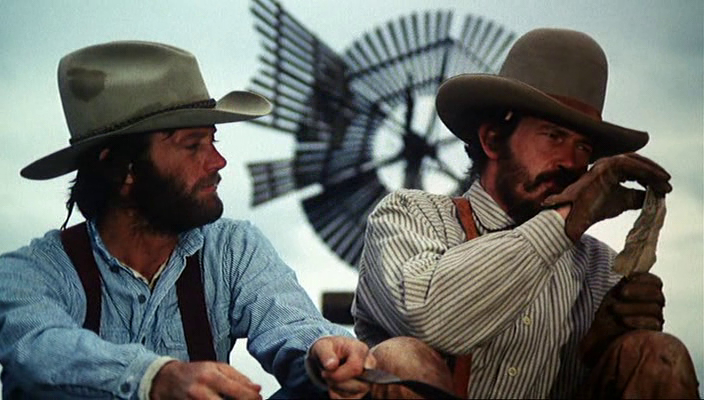
The list aims to target fans of all sorts of westerns and that’s why there are some offbeat choices. “The Hired Hand”, directed and starred by late Peter Fonda, is not much of a traditional western. You won’t get to see much of action here. However, it’s an emotionally captivating and sensitive movie.
The film follows a drifter who drifts from job to job throughout the Southwestern US who returns to his abandoned wife after seven years. Now he’ll have to make a difficult decision. Atmospheric music only elevates the already strong film. This is also one of the early works of legendary cinematographer Vilmos Zsigmond. The acting is all-around terrific, especially Verna Bloom as the vulnerable wife.
Even though it has a powerful climax, this is more of a subtle and poetic film which wouldn’t appeal to the fans of typical westerns but if you’re open to more challenging, more unusual films of the genre, this one is a great watch. Fonda’s direction is strong at building the atmosphere and it absorbs you easily. The studio thought they have another “Easy Rider” type of hit in their hands as to them it was yet another hippie effort from Peter Fonda and it certainly deserved to be a hit but unfortunately, the film kind of flopped but it’s never too late to re-appreciate it.
4. Joe Kidd (1972)
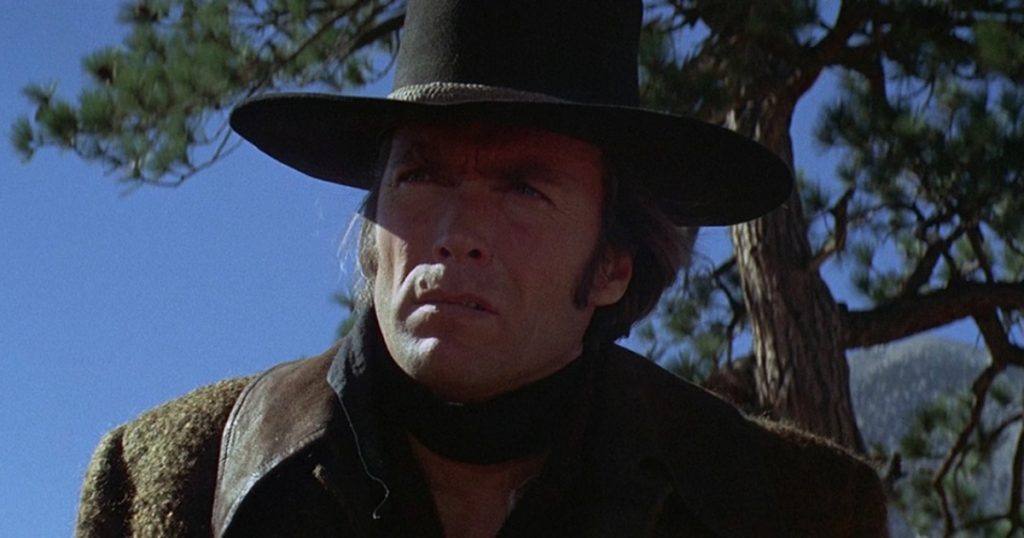
Time for the icons of the genre. Icons on both on- and off-camera: directed by John Sturges of “The Magnificent Seven” and “The Great Escape”, by legendary writer Elmore Leonard and starring two men who are often associated with the genre of Western that are Clint Eastwood and Robert Duvall. Certainly, Duvall’s career has been very varied since then but “Lonesome Dove” is still one of the top 5 performances by him. Neither of them are doing anything they haven’t done before but it’s still entertaining to watch them together. Clint plays a bounty hunter named Joe Kidd. Duvall hires him to bring in local hero John Saxon who fought against Duvall, a man who robbed Mexican population of their lands.
It’s not “The Outlaw Josey Wales” level but this is still a classic type of Eastwood film sure to please fans of his stuff. It’s also more complex and smart than you’d expect it to be. Bruce Surtees’ wonderful cinematography and Lalo Schifrin’s great score add a lot to the film as well. Don Stroud, James Wainwright, and Paul Koslo are the supporting actors of the film and they all bring so much color to the movie. Surprisingly, this is probably the least-known Clint western of the era and of course, it’s not among the masterpieces of the genre he was in but certainly deserves more recognition than it received.
3. Ulzana’s Raid (1972)
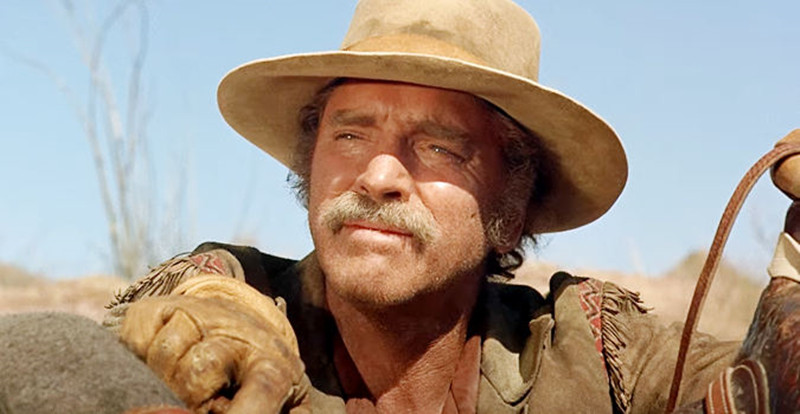
It’s the 70s, so one can maybe find other references or influences of the Vietnam war in the American Westerns of the era or on this list but no more than “Ulzana’s Raid” which is arguably the first Western that’s critical of the United States’ involvement in the Vietnam War. The script was written by Alan Sharp, whose another film “The Hired Hand” was also on the list. He described the film mostly as a homage to John Ford’s “The Searchers”. He went on saying “The Ulzana of the Ulzana’s Raid is not the Chiricahua Apache of history, whose raid was more protracted and ruthless and daring than the one I had written about. He is the expression of my idea of the Apache as the spirit of the land, the manifestation of its hostility and harshness.”
As for the film, it’s directed brilliantly by Robert Aldrich which resulted in his arguably best 70s movie. The film also works because of how complex it treats its characters and goes for a realistic, often subtle approach. Both sides are not perfect, and both sides are cruel in the film and through that, the film also reminds demonizing one’s opponents can bring tragic results. Sharp’s script is so good that there’s an Elmore Leonard-scripted film on the list but it feels more Elmore Leonard than him somehow.
2. The Chant of Jimmie Blacksmith (1978)
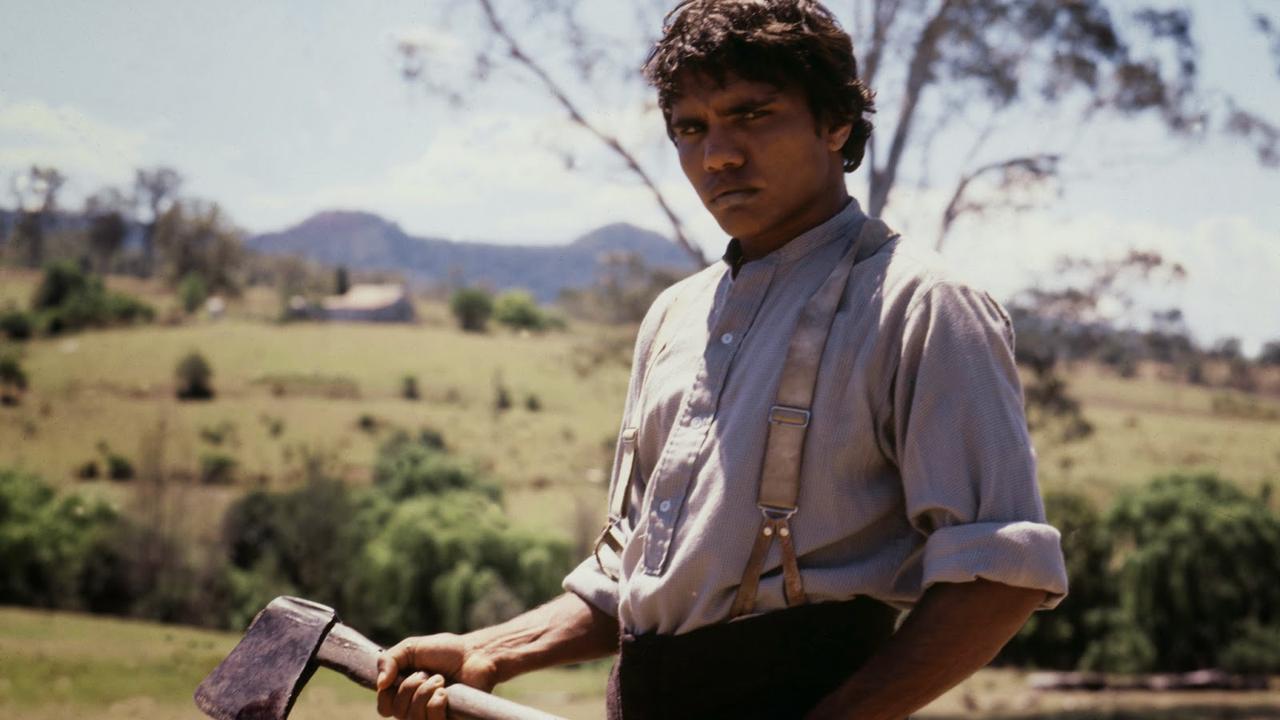
Australian entry of the list. The film is set in Australia at the turn of the century: The young Jimmie Blacksmith is a mixed-race man. He goes through mental and physical abuse often due to his racial background. Marrying white Gilda makes things even worse. When the humiliated Jimmie realizes that he will never belong to white society, he fights back. He goes on a murder spree against whites.
A brutal, disturbing but fascinating mix of drama and revisionist Western was praised by Roger Ebert with the following words: “I found no message in the movie, and no contemporary political attitude reflected in the events of the past. What I found instead was much rarer, a film concerned with showing us how people felt, acted and lived 80 years ago.”
Indeed, that’s true. It’s directed by Fred Schepisi and this ended up being his ticket to Hollywood, making great pictures like “Roxanne” and “Six Degrees of Separation” since then. Its brutal and bloody sequences might not be for everyone but this is not some kind of mindless slasher film. The acting is very strong, the script is smart and the cinematography is amazing. Certainly a depressing movie but a very thought-provoking one.
1. Bad Company (1972)
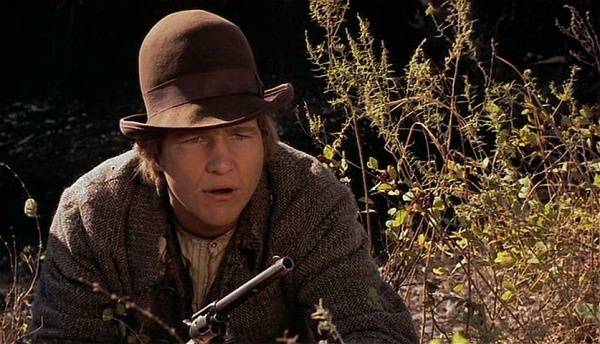
Jeff Bridges is a perfect fit for the Western genre; from the much underrated “Hearts of the West” to “True Grit”. He’s great here once again, as is Barry Brown who was perhaps best known for his role in Peter Bogdanovich’s flawed but still amazing “Daisy Miller” before his tragic death. Brown plays Drew, who’s hiding to not go to war. His parents give him $100 and urge him to go West to avoid being drafted into the army.
This is not much of a plot-driven film, in a sense it doesn’t matter if we go and explain what happens later on. You need to see it for yourself because it’s mostly a series of self-contained episodes. The thing is all these episodes are great and as a character study, it works incredibly well.
What makes the movie so special is how authentic it feels; it feels very original and even though the story seems simple, it has a lot to say. For a small budget, it also has a terrific production design, something that often lacks in modern-day westerns these days. There’s also a much-needed humor injected in several sequences and it’s pretty amazing they balance the tone between light and dark themes.
It’s not some kind of a masterpiece like “Unforgiven” is but certainly a good company for those who love their Westerns more critical, more thoughtful, and more real. It’s also the feature film debut for Robert Benton who later went on to make successful films like “Kramer vs. Kramer” and “Places in the Heart”.